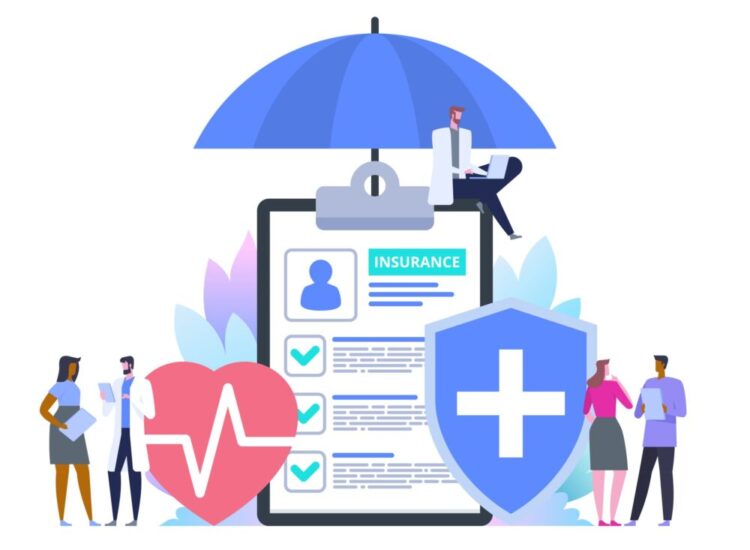The increasing availability of online learning has broadened access to criminal justice education, creating new opportunities for aspiring professionals. The growth of criminal justice degree programs online presents a significant shift in how individuals pursue careers in this field, offering flexibility and accessibility alongside challenges related to program quality and individual learning styles. This article examines the various aspects of online criminal justice education, including career paths, degree types, accreditation, financial considerations, and success strategies.
Toc
- 1. Breaking Down Criminal Justice Career Paths for Online Learners
- 2. Understanding Online Criminal Justice Degree Program Types
- 3. Related articles 01:
- 4. Navigating Accreditation for Criminal Justice Degree Programs Online
- 5. Financial Considerations and Aid Options
- 6. Success Strategies for Online Learning
- 7. Emerging Trends in Criminal Justice Education
- 8. Specialized Considerations for Florida Students
- 9. Conclusion: Charting Your Criminal Justice Career Path
- 10. Related articles 02:

Breaking Down Criminal Justice Career Paths for Online Learners
The criminal justice field offers diverse opportunities for professionals seeking meaningful careers that make a significant impact on society. Online criminal justice degree programs have revolutionized educational access, creating pathways for individuals from various backgrounds to enter this dynamic profession.
Key Career Opportunities
Students pursuing criminal justice degree programs online can explore multiple exciting career tracks:
- Law Enforcement Careers
- Police Officer: Enforcing laws, responding to emergencies, and protecting the public.
- Detective: Investigating crimes, gathering evidence, and solving cases.
- Federal Agent: Working for agencies like the FBI or DEA, focusing on national security and federal laws.
- Campus Security Professional: Ensuring safety on college campuses, handling emergencies, and liaising with local law enforcement.
The Bureau of Labor Statistics (BLS) projects a 4% growth for police and detectives between 2020 and 2030. Recent advancements such as the increased use of body cameras and predictive policing software are reshaping the profession, necessitating specialized training and skills. As law enforcement agencies adopt technology-driven approaches, candidates with robust technological skills will be highly sought after.
- Legal System Roles
- Paralegal: Assisting attorneys with legal research, documentation, and case preparation.
- Court Administrator: Overseeing the administrative functions of the court system.
- Legal Researcher: Conducting detailed research to support legal cases and proceedings.
- Victim Advocate: Supporting victims of crime through the legal process and providing resources.
Legal roles are projected to grow as the legal system adapts to societal changes. The BLS anticipates a 10% growth for paralegals and legal assistants over the next decade, driven by the need for affordable legal services and an increasing number of court cases.
- Investigative Positions
- Crime Scene Investigator: Collecting and analyzing evidence from crime scenes to assist in investigations.
- Forensic Analyst: Utilizing scientific methods to examine physical evidence and aid criminal investigations.
- Digital Forensics Specialist: Investigating cybercrimes and retrieving data from electronic devices.
- Private Investigator: Conducting independent investigations for individuals or businesses.
The demand for forensic analysts and digital forensics specialists is skyrocketing, particularly as cybercrime rates rise. The BLS highlights a projected 31% job growth in this sector through 2029, highlighting a critical need for trained professionals in the digital realm.
- Rehabilitation and Support
- Probation Officer: Supervising offenders placed on probation and facilitating their rehabilitation.
- Corrections Counselor: Working within correctional facilities to support inmates’ rehabilitation.
- Juvenile Justice Specialist: Focusing on the rehabilitation of juvenile offenders and preventing recidivism.
- Rehabilitation Coordinator: Designing and implementing rehabilitation programs for offenders.
Employment for probation officers and correctional treatment specialists is expected to grow by 4% from 2019 to 2029, according to the BLS. This growth reflects an increasing focus on rehabilitation over incarceration, underscoring the need for trained professionals in this sector.
Understanding Online Criminal Justice Degree Program Types

When considering criminal justice degree programs online, it’s essential to understand the various types of degrees available. Each offers distinct advantages and potential career outcomes.
Associate’s Degree Programs
A 2-year criminal justice degree online provides foundational knowledge for entry-level positions. These programs typically cover:
- Fundamentals of criminal law
- Overview of the criminal justice system
- Ethical considerations in law enforcement
- Basic investigative techniques
Advantages:
- Affordability: Generally lower tuition costs compared to bachelor’s programs.
- Shorter Duration: Allows for quicker entry into the workforce, making it suitable for those needing immediate employment.
- Flexible Scheduling: Many programs offer asynchronous learning, enabling students to balance work and studies.
Counterarguments:
However, an associate’s degree may limit career advancement opportunities compared to a bachelor’s degree, and some employers may prefer candidates with a four-year degree. Students should weigh the immediate benefits against potential long-term career limitations.
2. https://vuanghenhac.com/mmoga-your-path-to-a-rewarding-career-nursing-education-masters-programs/
3. https://vuanghenhac.com/mmoga-psychology-graduate-degree-programs-your-path-to-success/
Bachelor’s Degree Programs
The best criminal justice degree programs online provide a comprehensive curriculum that covers advanced topics:
- Advanced criminology theories
- Criminal investigation techniques
- Cybercrime and digital forensics
- Public policy and justice administration
Key Benefits:
- Enhanced Career Advancement: A bachelor’s degree is often the minimum requirement for many entry-level positions in law enforcement and legal services.
- Higher Earning Potential: Graduates can expect to earn more than those with only an associate’s degree.
- Specialization Opportunities: Students can focus on areas such as forensics, cybersecurity, or law enforcement.
Counterarguments:
While a bachelor’s degree opens more doors, it often comes with significant financial burdens due to higher tuition costs and potential student debt. Students should carefully consider their financial situations and long-term career aspirations.
Master’s Degree Options
For professionals seeking leadership roles, pursuing a master’s degree in criminal justice can open doors to specialized positions. These programs often focus on:
- Strategic management in criminal justice agencies
- Policy analysis and development
- Advanced research methodologies
- Specialized concentration areas, such as homeland security or cybercrime
Counterarguments:
However, pursuing a master’s degree requires a substantial time commitment and financial investment. Professionals must evaluate whether the potential career benefits justify the costs involved.
Certificate Programs
Additionally, specialized certificates in areas such as digital forensics, crime analysis, or homeland security can enhance an individual’s qualifications and make them more competitive in the job market. These programs typically require fewer credits than a full degree and can often be completed in less time.
Why Accreditation Matters
Choosing criminal justice degree programs online accredited by recognized organizations ensures:
- High-Quality Educational Standards: Accredited programs meet rigorous standards set by governing bodies.
- Employer Recognition: Degrees from accredited institutions are more likely to be valued by employers.
- Financial Aid Eligibility: Students in accredited programs can access federal financial aid and scholarships.
- Transferable Credits: Students may transfer credits more easily between accredited institutions.
Differences Between Accreditation Types
Understanding the differences between regional and national accreditation is crucial. Regional accreditors, such as the Higher Learning Commission (HLC) or the Middle States Commission on Higher Education (MSCHE), are typically more recognized in academia and often preferred by employers. National accreditors, like the WASC Senior College and University Commission, tend to focus on specific vocational programs. Knowing the distinctions can help students make informed decisions about their educational paths.
Accreditation Verification Steps
- Check Institutional Accreditation: Verify that the school itself is accredited by a recognized accrediting agency.
- Review Programmatic Accreditations: Some programs may have additional accreditation specific to criminal justice.
- Verify Credentials with Professional Organizations: Organizations like the Academy of Criminal Justice Sciences can provide information about accredited programs.
- Research Regional Accreditation Standards: Understanding the accreditation standards in your state can help you choose a reputable program.
Financial Considerations and Aid Options
Cost Ranges for Online Programs
Tuition for online criminal justice programs can vary significantly based on factors such as degree level and institution type:
- Associate’s Degree: $6,000 – $15,000 annually
- Bachelor’s Degree: $15,000 – $36,000 annually
- Master’s Degree: $20,000 – $45,000 annually
Public universities typically offer lower rates than private institutions, making them an attractive option for budget-conscious students.
Financial Support Strategies
- Federal Student Loans: These loans offer lower interest rates and flexible repayment options.
- Scholarships: Numerous organizations provide scholarships specifically for criminal justice students, including the American Society of Criminology and local law enforcement agencies.
- Grants: Unlike loans, grants do not need to be repaid and can significantly reduce the overall cost of education. Examples include Pell Grants and state-specific grants.
- Employer Tuition Reimbursement: Some employers offer programs that help cover educational expenses for employees pursuing relevant degrees.
While options for a criminal justice degree online free are limited, various financial assistance programs can help alleviate costs, making education more accessible.
Success Strategies for Online Learning
Studying online requires discipline and effective time management. Here are some strategies to help you succeed in your online criminal justice degree program:
Time Management Techniques
- Create Structured Weekly Study Schedules: Establish specific times for studying and stick to them.
- Use Digital Planning Tools: Apps and calendars can help you organize your tasks and deadlines.
- Set Realistic Academic Goals: Break larger projects into smaller, manageable tasks.
- Minimize Potential Distractions: Find a quiet study space and limit distractions from social media and other sources.
- Establish Dedicated Study Spaces: Create a specific area for studying to help signal to your brain that it’s time to focus.
Effective Study Habits
- Utilize Study Strategies: Techniques such as summarizing materials, joining online study groups, and utilizing digital resources can improve retention and understanding of course content.
- Engage with Course Materials: Actively participate in discussions and forums to deepen your understanding.
- Practice Self-Assessment: Regularly quiz yourself on the material to reinforce learning.
Networking Opportunities
- Join Online Professional Forums: Engage with other students and professionals in the field through online platforms.
- Participate in Virtual Student Organizations: Many programs offer opportunities to connect with peers and faculty.
- Connect with Alumni Networks: Alumni can provide insights and connections that may lead to job opportunities.
- Engage in Professional Social Media Groups: Platforms like LinkedIn offer groups focused on criminal justice where you can network and learn from others in the field.
Emerging Trends in Criminal Justice Education
The landscape of criminal justice education is evolving rapidly. Here are some emerging trends:
- Integration of Technology: Many online programs are incorporating virtual reality simulations for crime scene investigation training, providing students with immersive learning experiences.
- Growing Demand for Cybersecurity Expertise: As cybercrime becomes more prevalent, criminal justice programs are increasingly offering courses focused on cybersecurity, preparing students for this vital area of need.
- Rise of Micro-Credentials: Shorter, focused certificate programs are gaining popularity as they allow professionals to quickly upskill in specific areas, addressing skill gaps in the workforce.
Specialized Considerations for Florida Students
For those considering criminal justice degree online Florida, several unique regional advantages can enhance your educational experience:
- State-Specific Law Enforcement Training: Florida offers programs tailored to the state’s law enforcement needs, including courses on local laws and regulations.
- Proximity to Federal Agencies: With agencies like the FBI and DEA located in Florida, students have opportunities for internships and networking.
- Diverse Urban and Rural Law Enforcement Environments: Florida’s varied landscape provides a rich context for studying different aspects of criminal justice.
- Specialized Homeland Security Curricula: Given Florida’s tourism and border security concerns, programs often include specialized training in homeland security.
Conclusion: Charting Your Criminal Justice Career Path
Online criminal justice degree programs provide flexible, accessible educational pathways for aspiring professionals. By carefully selecting accredited programs, understanding financial options, and developing strong online learning skills, students can successfully transform their career trajectories.
The criminal justice field continues evolving, with increasing demand for professionals skilled in technology, data analysis, and complex investigative techniques. Your online degree can be the critical first step toward a rewarding, impactful career serving communities and upholding justice.
As you embark on this educational journey, remember to prioritize networking, seek mentorship opportunities, and stay informed about industry trends. With dedication and the right resources, you can achieve your career goals in the criminal justice field.
1. https://vuanghenhac.com/mmoga-psychology-graduate-degree-programs-your-path-to-success/
5. https://vuanghenhac.com/mmoga-your-path-to-a-rewarding-career-nursing-education-masters-programs/










